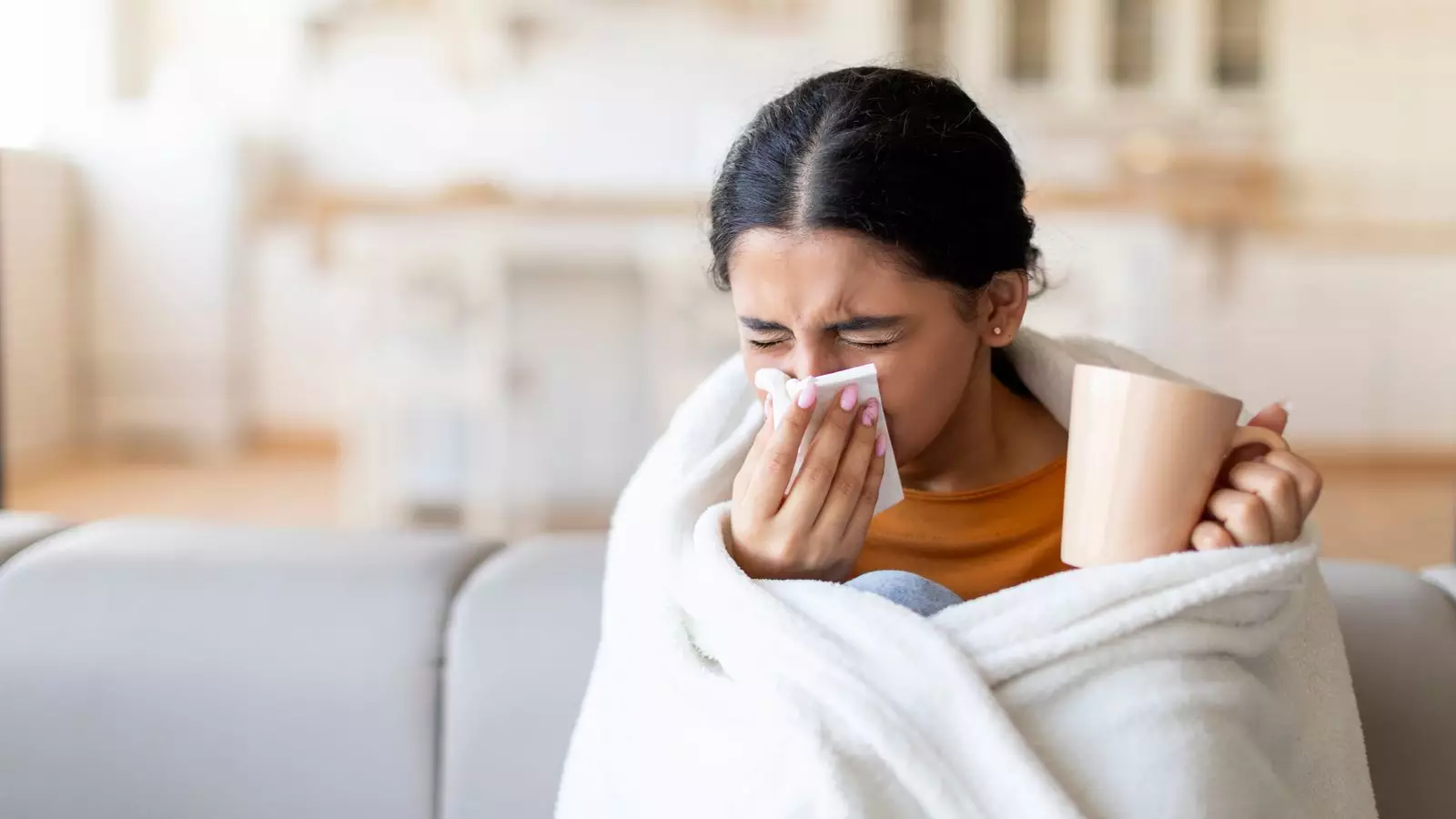Recent reports indicate a staggering 70% surge in flu hospitalizations in England, raising alarms among health officials and the public alike. The NHS revealed that the average daily count of flu patients in hospitals soared to 1,861 last week, a significant increase from 1,099 the previous week and a dramatic climb from just 402 during the same timeframe last year. These figures not only underline the severity of the current flu season but also highlight a concerning trend where children aged 5 to 14 are experiencing the highest infection rates. With winter on the horizon and the imminent closure of schools and nurseries, the anticipation is that flu cases will escalate among adults, further straining healthcare resources.
As flu cases mount, they are accompanied by a simultaneous rise in other viral infections such as norovirus and RSV (respiratory syncytial virus). NHS England reported an average of 837 hospital beds occupied by patients exhibiting norovirus symptoms, a 10% increase from the previous week and a striking 64% bump from the prior year. Adding to the complexity of this viral storm, hospitals are also seeing inflating admissions due to RSV, with 152 children hospitalized each day—up from 142 the week prior. Notably, COVID-19 remains a concern, occupying 1,343 beds, although this figure has slightly declined.
The intersection of these conditions has given rise to the fear of a “quad-demic,” a term used by health professionals to describe the potential collision of four prevalent winter viruses. GP David Lloyd emphasized that as communities gather indoors over the winter months, the risks affiliated with contracting multiple viruses simultaneously become increasingly pronounced.
The Call to Vaccinate: A Last Resort?
In light of this health crisis, health authorities are urging the public to become proactive in safeguarding their health. Eligible individuals—particularly those over 65, pregnant women, and personas with defined health conditions—are encouraged to receive vaccinations for flu, COVID-19, and RSV. Notably, a variety of locations, including pharmacies, supermarkets, and even festive settings like Christmas markets, are facilitating access to these vital vaccinations. Professor Sir Stephen Powis, NHS England’s medical chief, has strongly advocated for flu vaccine appointments to be made promptly to ensure maximum protection against severe illness.
As the cold months persist, health experts stress the importance of vaccination not only to protect oneself but to help shield the broader community from these rampant viruses. Health Secretary Wes Streeting echoed this sentiment, stressing the urgency for individuals to act to prevent further strain on the NHS as it contends with rising patient numbers across various illness categories.
The repercussions of the current health crises extend beyond just increased hospitalizations. Crisis levels are being reached in Accident & Emergency departments, which reported record attendances in November, recording over 2.31 million visits, marking it as the busiest November to date. Unfortunately, the efficiency of patient care is suffering, as only 57% of patients were seen within the NHS’s four-hour target, a decline from 58.1% in October.
Moreover, ambulance services are feeling the strain, with an average handover time of nearly 43 minutes—a sharp increase from the previous year’s figures. Delays have escalated, with over 14,600 patients experiencing handover waits exceeding an hour last week. These delays reflect a system under enormous pressure, aggravated by the simultaneous surge in multiple viral infections.
As winter unfolds, health officials are calling for vigilance and preparedness among the public. The combination of rising flu cases, persistent norovirus, RSV, and lingering COVID-19 requires an urgent, coordinated response from both health authorities and communities. The imperative for vaccination cannot be overstated, as it represents a frontline defense against these viruses, and proactive measures must be adopted by all for a healthier winter season. The challenge lies not just in managing individual illnesses but in protecting the collective health of the population, ensuring that the NHS can sustain its ability to provide care amidst escalating pressures.


Leave a Reply